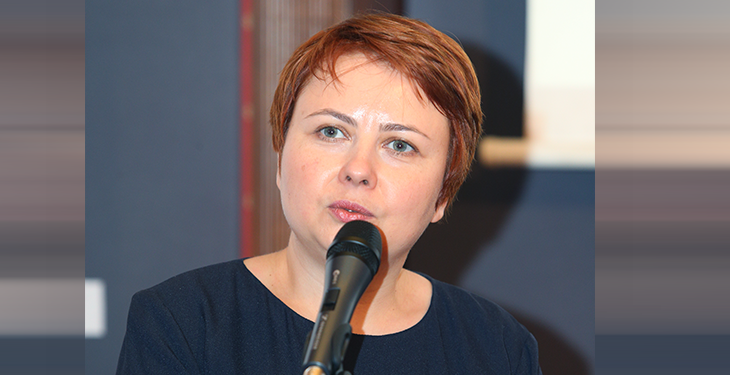The acquisition of complex services and the selection of technology providers should take into account the ability of the suppliers to be a trusted partner in a period of rapid changes, it is message launched by Corina Truică, Chief Operating Officer at CEMS EPC SA, at the first Energy Breakfast Club meeting from this year, held on January 25th at the Cesianu Racoviţă Palace in Bucharest.
Corina Truică referred to the maintenance services, presented as one of the important pillars in an organization, in order to ensure an operational system and for optimizing the asset lifecycle. “The maintenance services involve a lengthy interaction with the beneficiary and practically the compatibility of the management systems between the two companies,” said Corina Truică..
In her view, service providers have a key role in ensuring the transition to the Industry 4.0, mainly by testing new innovative solutions and assisting the interested companies to assess their opportunities and to manage risks. The Industry 4.0 is a concept that summarizes the most important trends of the moment, among these: the interaction between the informatic and physical systems, the Internet of All Things (IoT), Big Data, cloud computing, robotics and artificial intelligence. “The existing physical structure is duplicated by the cyber environment,” said Corina Truică. “Basically, the machines are able to communicate and exchange data with each other, to make decisions and to enable decision making based on automatically processed data. Mainly the redundant activities or the ones that are easy to anticipate are replaced with an infrastructure based on artificial intelligence, and this greatly reduces the risk of human error.”
In this type of economy, the main expectations of the industrial companies turn to the technology providers: contractors of electrical installations and automatizations (such as CEMS), providers of IT infrastructure, component manufacturers (for example, sensors), system integrators, software solutions providers. The complex service providers are the best at meeting the challenges identified by companies such as – lack of qualified human resources, financing sources and developing solutions – but also to prevent the major new emerging risks – those related to security and understanding the concept..
DOWNLOAD THE PRESENTATION OF CORINA TRUICĂ
Petrotel LUKOIL is one of the main partners of CEMS EPC SA, and this collaboration works very well “because they have rigorous and very clear procurement procedures,” said Corina Truică. The priorities of Petrotel LUKOIL in the assessment of services are, in this order: the safety of people and environment, reliability, energy efficiency, advanced technologies, economic competitiveness. “From our side, we appreciate the clarity in formulating the requirements, as well as the special appetite for new technologies and progress,” said Corina Truică.
Services purchasing versus goods purchasing
Corina Truică was referring to the specific of the procurement of complex services, opposed to the purchase of products. Increasingly more, the share of services in the total of the purchases tends to increase, and “the personnel from the procurement departments is usually not specialized in the procurement of services, and they tend to follow the same procedures as in the procurement of goods”. The staff who directly benefits from the services should be trained in terms of defining the needs, the expectations and the assessment of the service providers. For an efficient process of performing the procurement of complex services there are several critical steps:
- Detailed defining of the services and of the acquisition targets
- Optimizing communication between the final beneficiaries of the services and the purchasing department
- Establishing the results assessment tools and communicating them inside the organization and to the supplier (what gets measured, gets done)
- Ensuring that all the parties have a clear understanding of the terms and objectives of the procurement of services
In this context, the classic selection criteria (price, certifications, previous experience) are supplemented by new criteria, such as the process management model, the compatibility of the IT systems, the corellation of the philosophies of development and the technological level of the supplier. “Recently and increasingly more, the purchase of certain services may involve the assessment of the compatibility of technology and IT infrastructure, while decisions such as outsourcing of support functions involve a thorough risk analysis,” said Corina Truică.
Compared with the purchasing of goods, complex services involve a more consistent documentation and the selection process is more comprehensive, because different suppliers cannot provide identical services.
